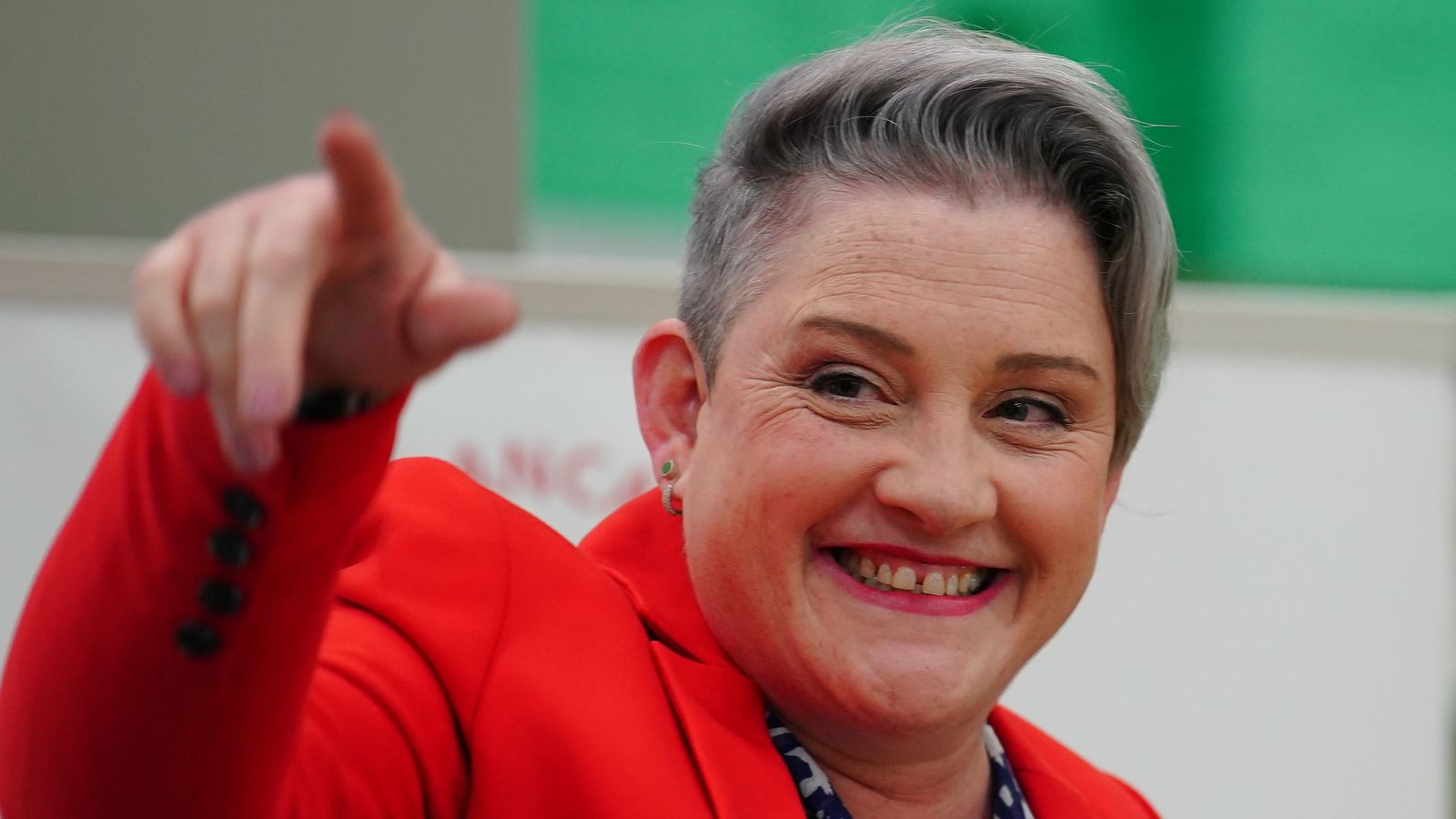West Lancashire by-election: Labour hold onto seat as Ashley Dalton secures victory

Labour have held on to their seat in West Lancashire after a by-election victory which saw Ashley Dalton become the country’s newest MP.
Ms Dalton secured a majority of 8,326 over Conservative candidate Mike Prendergast, with a 10.52% swing from the Tories to Labour.
In her victory speech, she said the people of her constituency have spoken on “behalf of the country” and sent a message to the Conservative government that they “do not have confidence in them to govern or the prime minister to lead.”
She added that these are “testing times for our country” with the cost of living crisis, as she told the Conservatives to “move out of the way and let Labour take over”.
The result marked the third by-election victory for Labour in recent months.
While veteran MP Rosie Cooper’s majority at the 2019 snap general election was 8,336, that was over 36% of the vote, compared with just over 25% this time around.
It was the first time the Tory vote has dipped below 30% since the 1997 general election, which Tony Blair’s Labour party won by a landslide.
In December, Labour comfortably held on to its seat in Stretford and Urmston, Greater Manchester, with a 10.5% swing from Conservatives to Labour.
The victory came just two weeks after a successful result in Chester, when Samantha Dixon held the seat for Labour with an increased majority of some 11,000 over the Tories.
Advertisement
A couple of hours before the result of the West Lancashire by-election was declared shortly before 2am, senior Tories at the count were prepared for the worst.
Privately, they were predicting a 60% share of the vote for Labour and 25% for the Conservatives.
They weren’t far wrong. The Tory vote has indeed slumped from over 36% at the 2019 general election to about 25%. But Labour’s share was higher than the Tories feared, above 62%.
Ms Cooper, 72, resigned in November to become chairwoman of the Mersey Care NHS Foundation Trust.
The MP was the victim of a plot to kill her by an alleged member of the banned neo-Nazi group National Action and admitted the stress of what happened had “taken its toll”.
West Lancashire has been a Labour stronghold since 1992 when Colin Pickthall took the seat from Tory MP Ken Hind, who had held it since 1983.
Although winning with an increased majority in 2015 and 2017, Ms Cooper saw her majority drop in 2019.
West Lancashire separates Liverpool, a historically Labour-supporting area, and the Conservative-held seats of South Ribble, Southport and Bolton West.
The constituency has a mix of rural and urban areas while its largest town, Skelmersdale, has relatively high levels of deprivation compared with the neighbouring towns of Aughton and Ormskirk, which are considered relatively wealthy.